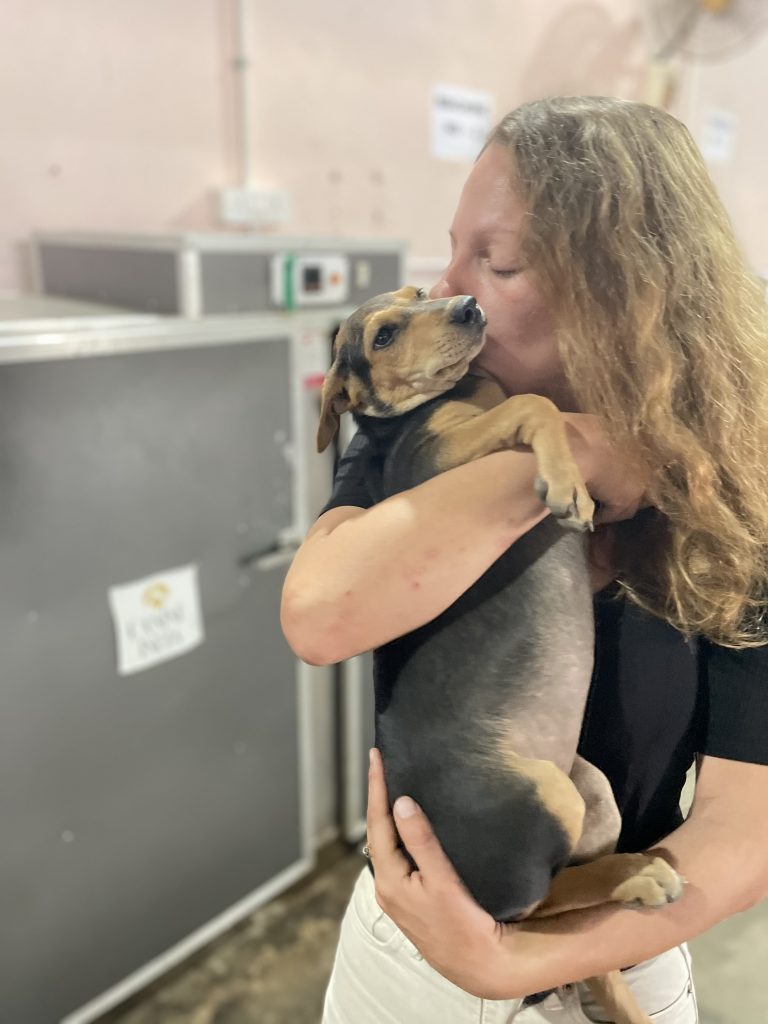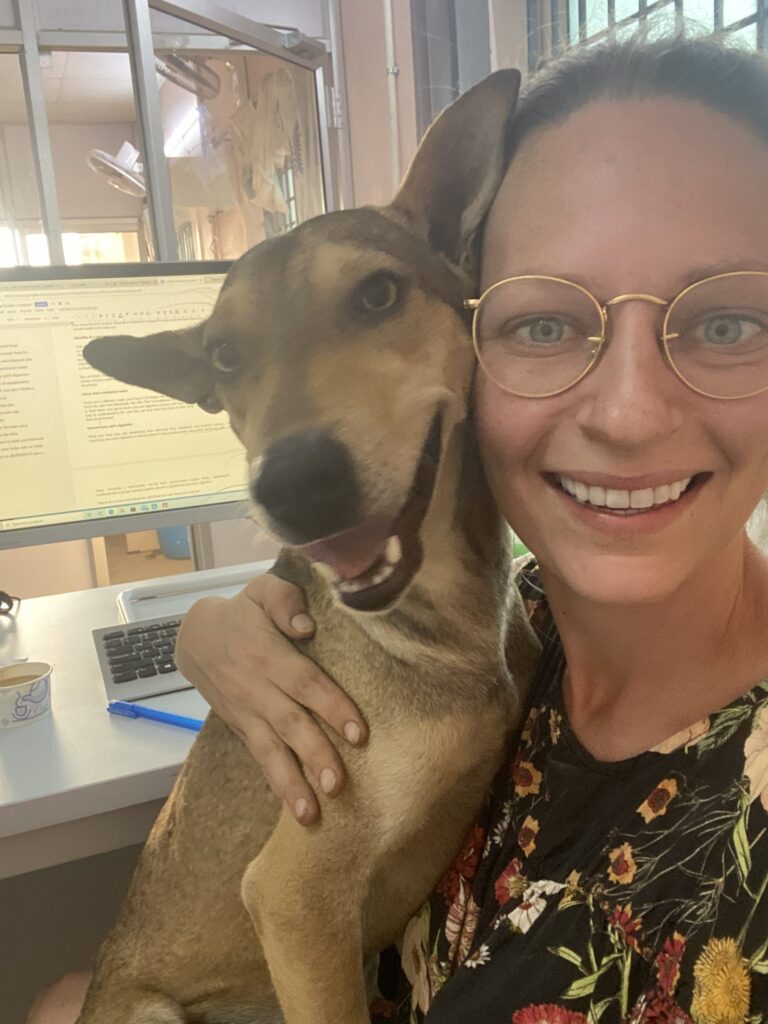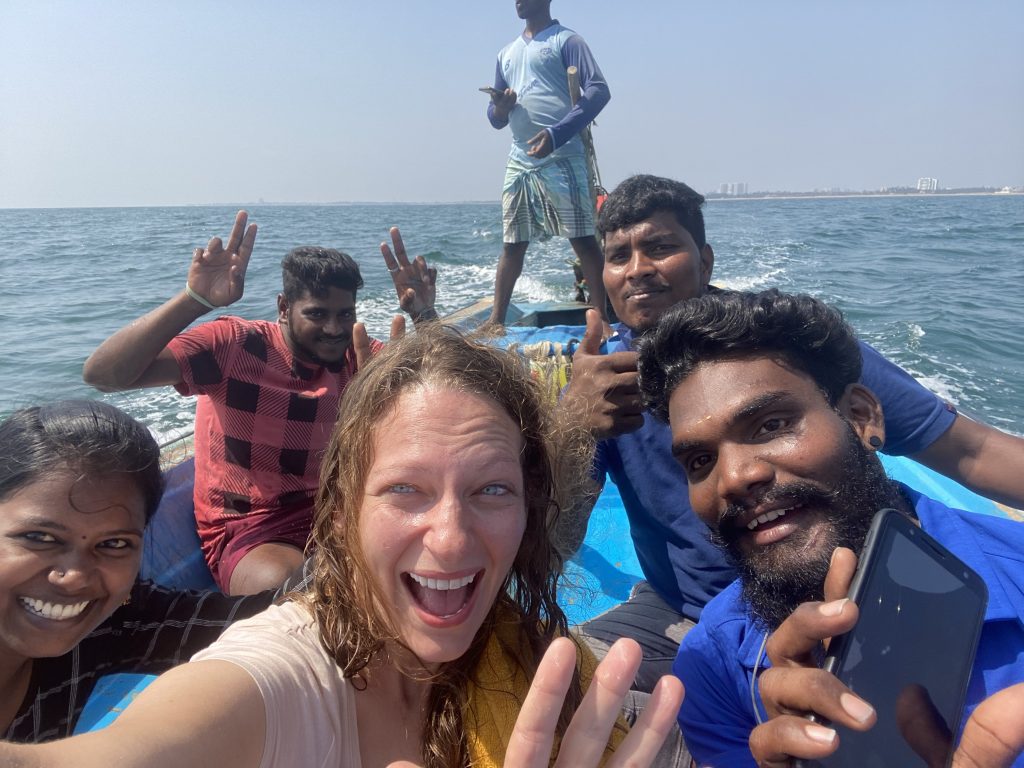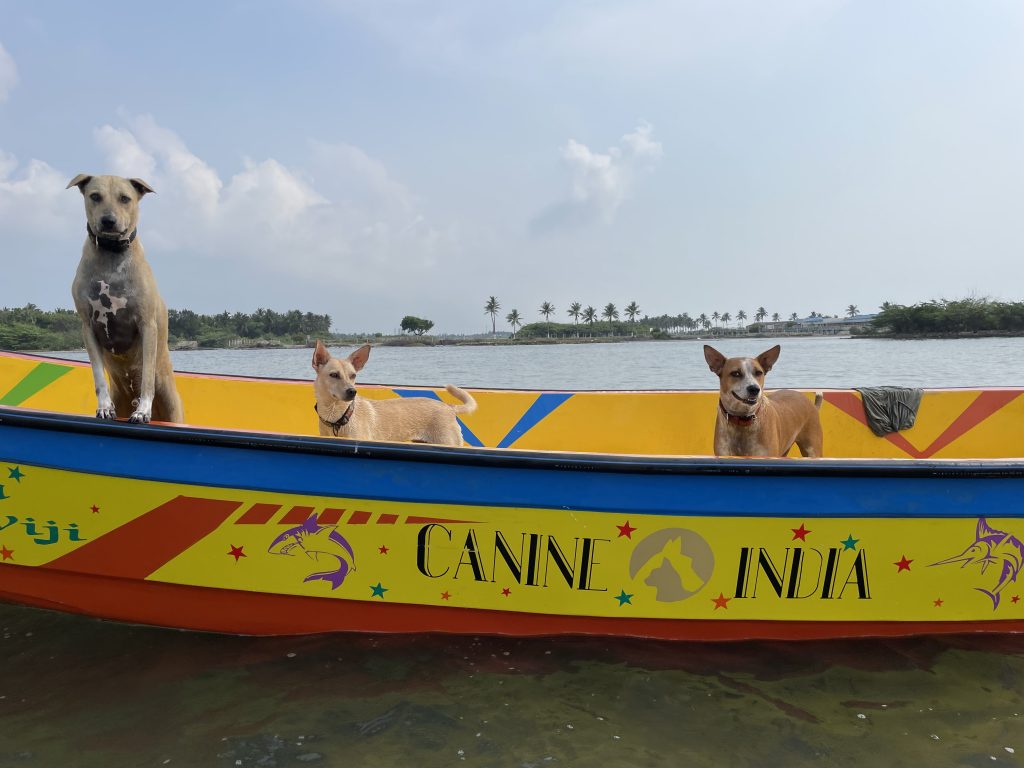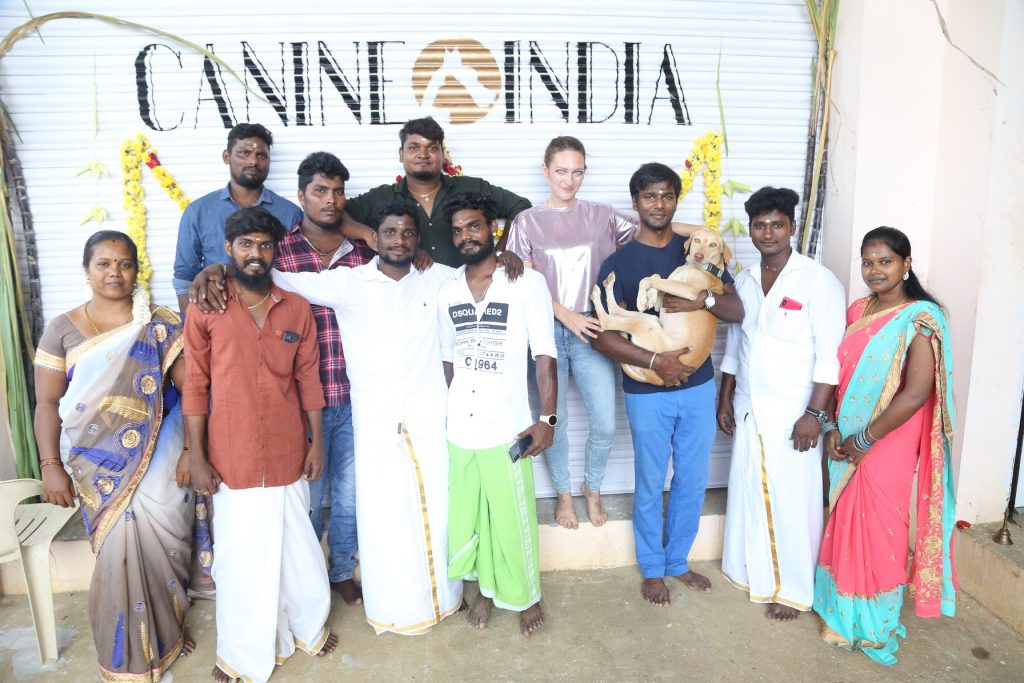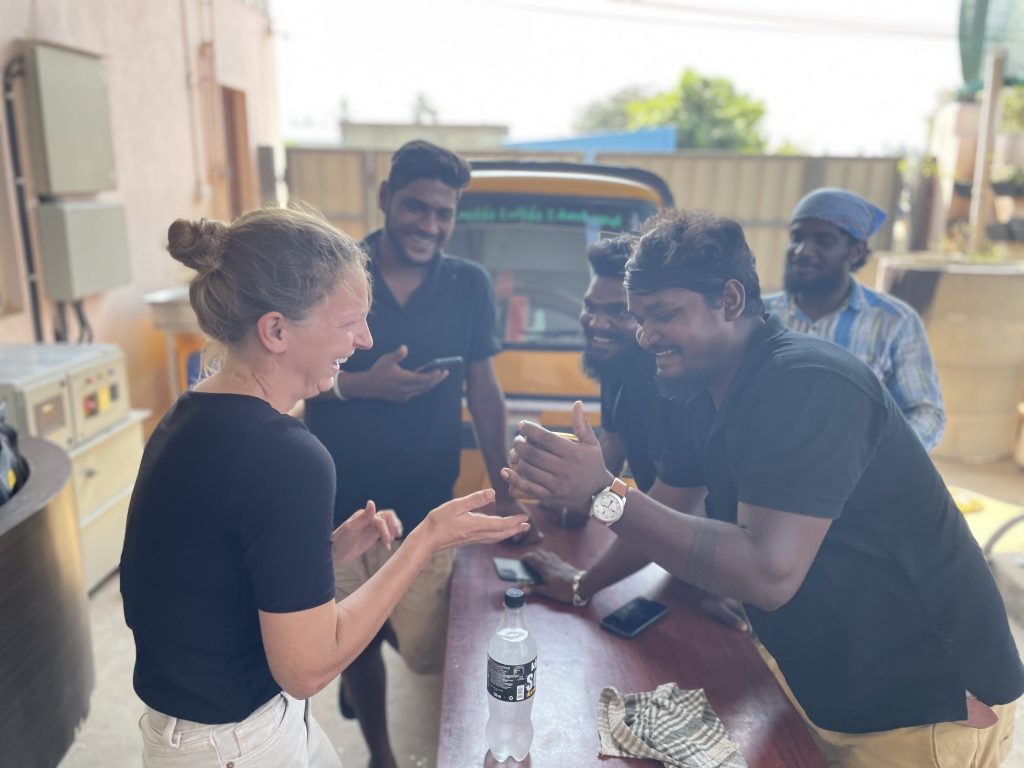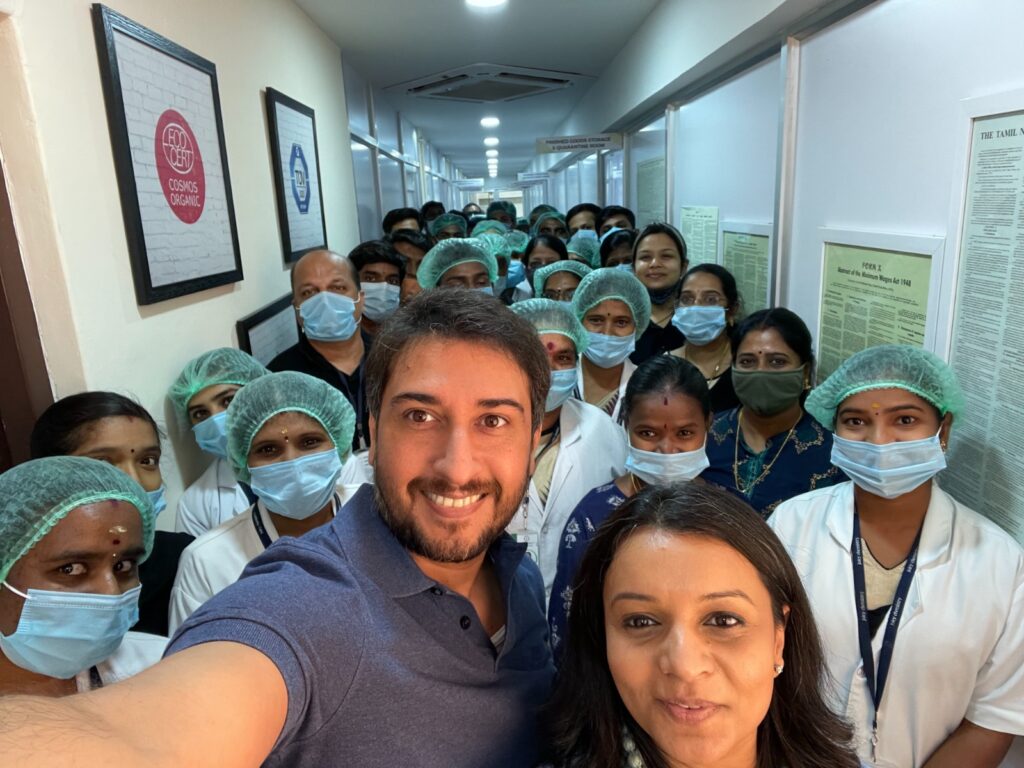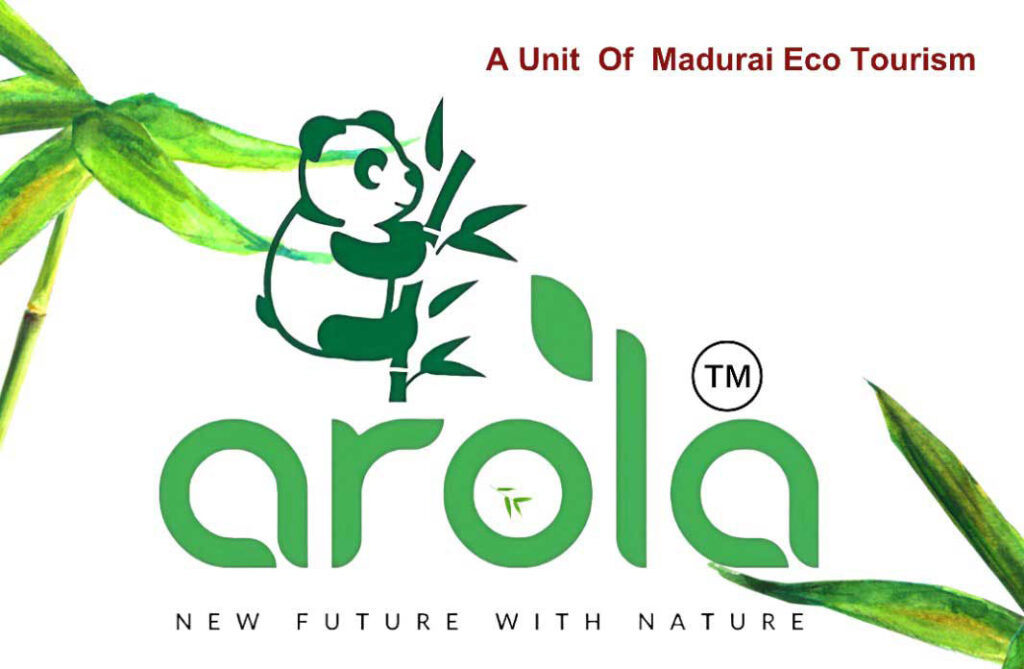Julia Pape, Lawyer and Political Journalist, born in Germany, transformed into ‘Sulthan’, Savior of the Indies (and other canines and felines) when she moved to Chennai with her husband, Harish, in the year 2017.
Her earlier travels around Asia made her realise her love for these furry outlaws. “I have always loved nothing more than the dogs and the cats on the street. So obviously when we came here (to Chennai), I was very keen on picking them all up and getting them home.”
Back in Germany, Julia says that thinking about adopting a pet was almost always followed by a three to six month process that involved studying nutrition, finding a trainer, reading up about the species, talking to friends, preparing its place and creating new schedules before the pet was brought home.
However, her first pet in India took her by surprise. “My husband called me around lunchtime and said, hey, do you want to meet me over lunch? My parents said they found a dog in a hole and it’s probably going to die. So they’re asking if you want it.” Julia recalls, “No human could ever say no to that, right?” Ironically so, Julia found herself quickly preparing by making a collar with a Stella McCartney bag strap. And Voila! There she was five minutes later, Coco, a severely injured Indie who had finally found a home.
With the collar and a name in place, the next thing on Julia’s list was to go to a pet store. “I need to buy green tripe, raw meat, dehydrated treats and chews (and the list goes on),” she recalls based on her experience as a ‘dog mom’ back in Germany. To which her husband responded, “why don’t I just take you there and you buy what you see.” Anticipating freezers of raw meat and shelves of dehydrators, it was to Julia’s horror that all of Chennai’s pet stores were only stocked with kibble, which is a cost efficient and convenient option for most pet owners but not the healthiest option for a pet.
Their attempts to get Coco the right kind of nutrients through chicken and fish (which are the most common types of meat in Chennai) lasted a year, after which Harish set out to farms around Tamil Nadu to scope for livestock. Finally able to source good quality meat for her dog, Julia returned to Germany. “I bought a Dehydrator. In one of my suitcases I had 5kgs of dried beef organs and whatnot. On the other hand, I had these electric machines. I was just praying that customs wouldn’t stop me,” she recollects with laughter, “It was all fine though.”
She realized that India has one and a half billion people and that there may be others like her, so she decided to employ her skills as a journalist to blog on Instagram about pet nutrition, as that kind of information was not easily available. Coming from a country where raw meat wasn’t as stigmatised, it took Julia some time to understand why her posts on Instagram were receiving negative comments. She eventually began addressing the issue by reasoning out the dual interest in using all parts of the livestock: health benefits for the pet and environmental benefits due to reduced waste. It was then that someone in Kolkata expressed interest in what she was doing and that’s where it began. Harish went to buy pouches and Julia started packing the dehydrated meat and labelling the pouches.
Today Canine India has an online store and delivers all over India with their main orders coming from the Metros and sometimes even exotic locations like Andaman. There have been times when expats who come to India order huge quantities of dog food so that they could stock up and feed their pet back at home. “I feel so proud and rewarded because they are actually doing what I used to do when I came to India from Germany.”
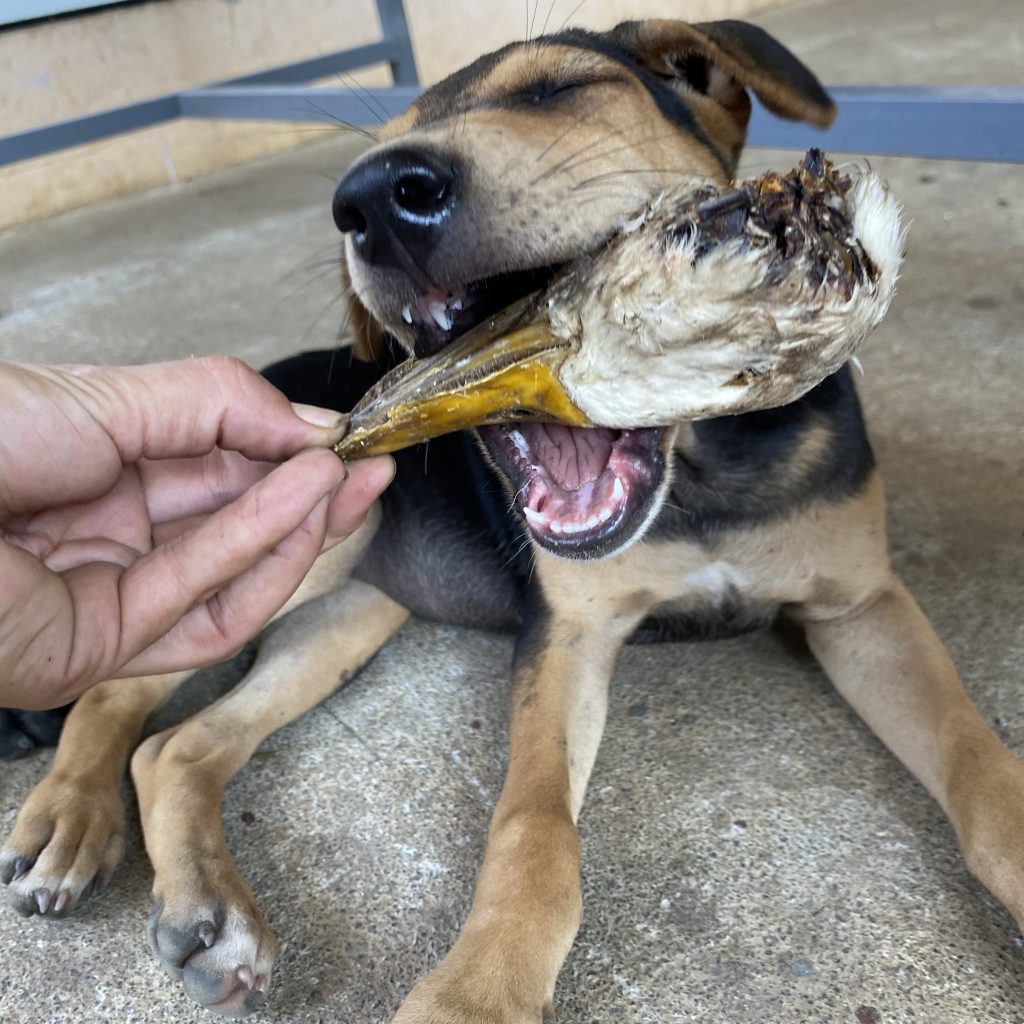
Soon Julia set out and found a warehouse in the outskirts of Chennai and recruited people in the meat industry. Some of the warehouse employees were even discovered through casual conversation with auto drivers and restaurant employees. Most of these people were upskilled to work on packaging and transporting. “We currently have 12 people working in the warehouse, but if we include the dogs we’re big enough to be listed on the stock market,” laughs Julia. Besides this, a couple of her clients from Delhi and Mumbai reached out to her and now help her with marketing and customer service. “There are alot of strings attached when you start a small business. We have some people helping with the delivery, some working on web development and some people helping us set up an NGO and a trust for Indies.” Julia concludes that it is difficult to determine the exact number of people one would be working with at the initial growth phase of a company.
Canine India has grown slow and steady, and now runs its fourth year as a bootstrapped company. The company’s main expenditures cover paying salaries, electricity to run the warehouse, transport and even occasional developments like fixing a new roof to make the working conditions inside the warehouse more bearable. “I’d rather think about the growth in terms of the impact that we’ve made than in terms of money,” Julia explains. Currently, the business is self sustainable and the focus is on building a farm and trust to rescue and take care of the Indies. Julia believes that it is important to get the company working towards the original cause that it set out for before looking into making bigger profits.
According to the Statista Research Department, The population of pet dogs in India amounted for around 19.5 million in the year 2018 and is forecast to reach over 31 million by the end of year 2023. The growth in the number of pet dogs in India led to the increase in pet food sales, from approximately 139 million USD in 2014 to approximately 285 million USD in 2018.
Canine India is one of the brands that became popular during this period. Noticing the success of this brand, there was an increase in brands that focused on the demand for breed specific meat based nutrition. However, only some of them are based on thorough study about pet nutrition and very few consider the environmental impact of their business.
On the side, Julia has also taken courses on pet nutrition and gives consultations for Rs.1500, which take her about 10-11 hours of thorough research. These consultations require a lot of effort and bring in some revenue, but for Julia it is the little things that matter. “It’s about getting the email saying: Hey, I don’t know if you remember, but half a year ago, we took a consultation and I wanted to let you know that my dog is now not taking antibiotics anymore.”
With a base in Chennai came the Ocean bearing gifts. To avoid disrupting the underwater ecosystem, Julia is against using big ships for catching fish (and all other underwater organisms that ‘accidentally’ get caught in the big nets.) They now have their own boat and are tied up with a few men from the local fishing community, employing them for about four days a week. “I already caught some fish myself, that we then dehydrated for about eight hours,” Julia recollects, “The best thing about Chennai is that there’s incredible richness and huge spaces of water; freshwater lakes and oceans and it’s all clean!”
Setting up a local business in a foreign country comes with its fair share of cultural differences, as both drawbacks and opportunities. The struggles aside, Julia embraced her one of a kind experiences like traveling to villages around Tamil Nadu and sitting on a bed with a goat and four people while eating. “Of all the people I’ve met around the world, Indians are the most hospitable. No German would invite you into their homes on the first day and say: Eat! I’ll give you good food! And you can sleep in my bed, I’ll sleep on the floor.” Julia explains with amusement.
Julia refers to everyone involved in her company (including all the dogs on the street outside) as her family. The people working at the warehouse were initially very hesitant to express their opinions and suggestions and were too compliant in Julia’s opinion. “They treat me like: if there’s no chilled water for ma’am, then that’s the worst thing to ever happen in the world. That’s cruelty. We have to make sure she has cold water! And if the puppy is hungry, everybody has to run and get it food because ma’am likes the street dogs.” Julia works tirelessly to break the racial differences and instil a sense of autonomy in these workers as she cares about their personal growth. This has brought a sense of trust and a friendship within the team.
So how did Julia become Sulthan? It was during a recent Tamil movie screening with the warehouse employees. The movie was about a boy who was raised by outlaws who were really sweet to him but rough and tough on the outside. The name of the protagonist was Sulthan, so the warehouse employees (who are as rough and tough as they do manual work), now refer to her as Sulthan with adoration.
Two years ago #rawfeedingindia on Instagram would only lead you to posts by Julia and Canine India. Today there are 100+ posts on instagram from people all over the country showcasing colourful bowls that actually contain meat (which was at one point shunned by the Instagram community.) This is the impact that Julia was able to make through Canine India in the span of about 4 years; and it is with the same persistence and constant learning of how to tackle cultural differences that she wishes to scale her mission to save the Indies and provide all pets around India with the right kind of nutrition.
